J. Chris Griffin
About
For vocal lessons, it's all Pop. I focus on industry professionals and aspiring professionals who want to get signed, improve their tour stamina, extend their chest-voice range safely and sing with a proper balance of story, power, and pitch.
For production lessons, we follow the same curriculum I use in my NYU production and recording class.
I am heavily involved in the Music Industry, working on records with John Legend, Kanye West, Madonna, Missy Elliott, Kelly Clarkson, JoJo, UK groups Mis-Teeq and The Corrs, Russian superstar Sasha and jazz guitarist John McLaughlin. Other International credits include Vietnamese phenom Thuy “Top,” Brazilian pop stars Labanca and boy-band P9. Independent live recordings include the New Pornographers, Ben Kweller, The Veils, Peter Bjorn and John, The Blonde Redheads, Art Brut, and many others.
My compositions and productions are all over television and cinema with credits including trailers for the MGM movie “Pelham 123”, MTV's "Made", CBS's "NCIS" and NBC's "Dateline" as well as prime-time shows in the US, Australia, Norway, South Africa, Sweden, Mexico, Denmark, and many other countries.
As a vocal teacher and Founder of The Pop Vocal Academy in New York, I have seen my students and clients achieve incredible success as Billboard charting artists, winners of The Apollo Amateur Hour Next-Gen, contestants on NBC's “The Voice”, ABC’s “American Idol", featured performers on FOX’s “Glee” and several Broadway productions.
As a clinician, I have been featured with Antares (AutoTune), Propellerheads, AVID, M-Audio and other major manufacturers at trade shows, international conferences, and dealer training. Recently I was a featured producer/engineer for “Mix-Con” sponsored by Sonic Scoop and The Deli Magazine.
I am a decade-long adjunct faculty member at New York University and am based out of Engine Room Audio in Manhattan (Financial District).
Lastly, I love synthesizers! Over the years I have programmed sounds and demo-songs for several major synthesizers including Reason, McDSP's Synthesizer One, M-Audio's Pro Keys 88 and 88SX, and have contributed heavily to the production of musical equipment for many years. My products include SAW-1 Discovery, a unique synthesizer in the Rack Extension format (available in the Reason Studios Shop), the sample-discs "Premium Electric Pianos" and "Premium Vintage Keyboards" that were distributed by M-Audio, and the Electromechanical Refill, originally distributed by Reason Studios but now integrated into the Reason Factory Soundbank.
I love seeing students realize their power and potency. It's my purpose to encourage, lift, energize and empower people to live out their dreams. I specialize in music so that's where this is fulfilled.
I create a safe, clean and nurturing environment that encourages students to be real and deal with goals honestly.
Highlights
Photos and videos
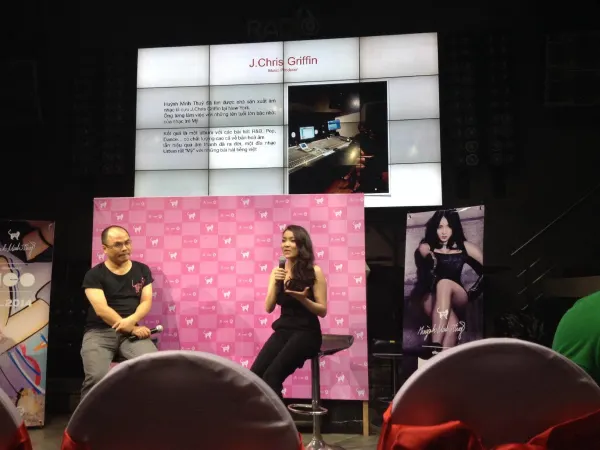
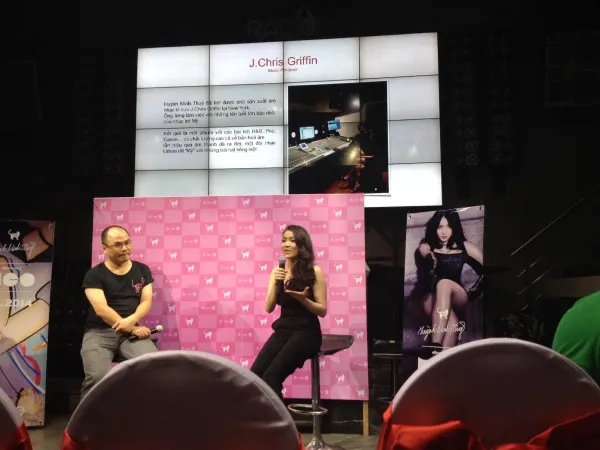
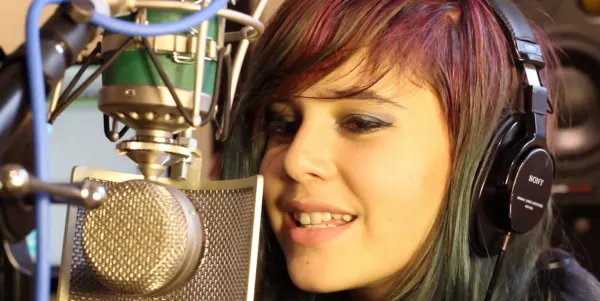
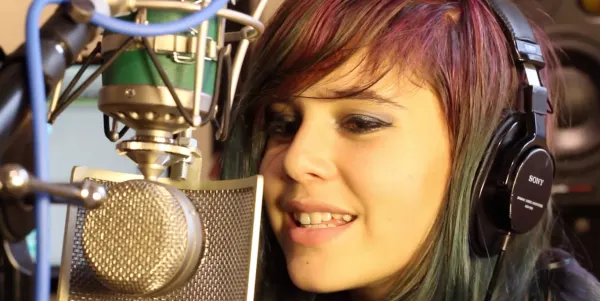
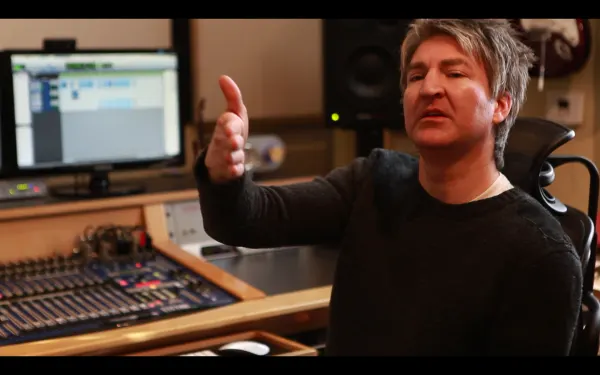

Reviews
Gabe K.
LaBanca
Elia E.
Sam J.
Sonya G.
Frequently asked questions
What is your typical process for working with a new student?
After an initial consultation, we begin by using repertoire that you are comfortable singing - typically a recent Pop song. We focus on Storytelling, Power, and Pitch in that order.
Pop music is a unique style, separate from Choral, Theater/Broadway or Classical. You may have already noticed that the vocal tools and techniques used in these styles simply don't work for Pop Music. High notes get choked, there's never enough air and your throat is always itchy and scratchy after singing powerfully for extended periods.
I have helped many people extend their chest-voice range by 5-6 notes safely and cleanly. Females can expect at least an F (that's easy actually) and most likely an Ab. Males can expect at least a C in full chest voice.
These lessons are for industry professionals and aspiring professionals. I train students as young as 9 or 10 and specialize in artistry for the music business as it exists today. My ideal client is in her late teen years or early 20s.
Parents and friends are encouraged to be in the room as lessons occur. This has been a safe, nurturing, restorative environment for artistic clients for over 15 years.
The results speak for themselves: higher Billboard chart counts, signings, multiple television appearances, movies, song placements and in one case, full mogul status.
What education and/or training do you have that relates to your work?
Almost 30 years in the music business starting near Atlanta, then Nashville, then finally New York. Major tours, performances and ultimately coaching and recording several top vocalists for Warner and Sony for several years.
This method was developed as a way to solve vocal damage that is so real in the Pop Music scene. Safe (but powerful) singing eludes so many people - it's easy and I know how to teach it effectively and safely.
I have a degree in Music Education (Valdosta State, 1991) with a bit of post-graduate study at Belmont University in Nashville (1993-1995). We talk technique and throat tension, we explore the biology and psychology of singing, and we sing high and powerfully with safety and consistency.
Do you have a standard pricing system for your lessons? If so, please share the details here.
Lessons start at $150 an hour. I recommend once weekly for most students and twice weekly for those who want to accelerate their learning (yes, I make more money, but that's not why). More than that, the brain simply cannot absorb and process the information effectively.
How did you get started teaching?
I have a Music Education degree and HATED getting it. I wanted to be a Rock star on saxophone and vocals. Never in my dreams did I expect to be a professor at NYU and a vocal coach (in addition to producing and mixing).
I did indeed tour and play, but my home was always in the studio. After witnessing countless vocalists struggle in the recording booth, I began coaching them from my college training and professional experience. On tour, I would see opening acts do well for two weeks, but get sent home after they lost their voice. It would happen over and over. Occasionally, a vocalist would show up and last 6-7 months. I asked them what they did, they showed me their tricks and I began applying them to my own voice and with artists in the studio. Safety and balance are essential.
In the studio, I would watch and listen as the best artists in the world delivered their stories and songs. These artists use the same techniques, the same methods and the same care for the voice that I teach. In many cases, I was the one that showed them how it worked.
After several years of recording and producing, I moved to a new studio, took the recording offline and started a vocal school called The Pop Vocal Academy. I was encouraged (and greatly helped) by a particular student who learned these techniques, applied them and was amazed at the results. She helped grow the core and clientele to a staff of 10 and a roster of almost 70 students.
A personal tragedy affected my family in 2016 and I could no longer lead effectively. We ceased operations over time and by March of 2018, the school was officially closed. It was an amazing run, but a new season has found me producing and mixing again!
I now only coach vocalists who are artistic, full of stories and fun to be with! Vocal lessons should be a happy experience!
I would love to meet you, listen to you sing, and offer my service with joy. Please come!
What advice would you give a student looking to hire a teacher in your area of expertise?
When looking for a qualified Pop vocal coach, make SURE they follow these rules:
Your throat should never hurt.
Your throat should never be itchy, tickly or scratchy when singing.
You should never be hoarse. Stop singing immediately.
Your neck should never hurt or feel swollen.
If they follow these rules everything will be fine.
Make sure they treat you with respect.
They should keep touching to a minimum. There's rarely a reason to touch. Make sure they ask permission EVERY TIME they teach this way. I never touch students when teaching.
You should have fun. It's essential to enjoy learning and singing. You should feel energized and alive. It won't happen every time, but even after a tough lesson, you should feel proud, knowing you are on your way to mastery.
What questions should students think through before talking to teachers about their needs?
Have a song to sing when interviewing teachers. Make sure it's one that you are comfortable with. Bring your track and have it ready on your phone. Sing along with the original song or sing acapella - it doesn't matter as long as we hear you as you are.
Of course, you'll never be as comfortable in the vocal studio as you might be at home, but singing a familiar song in a comfortable range helps.